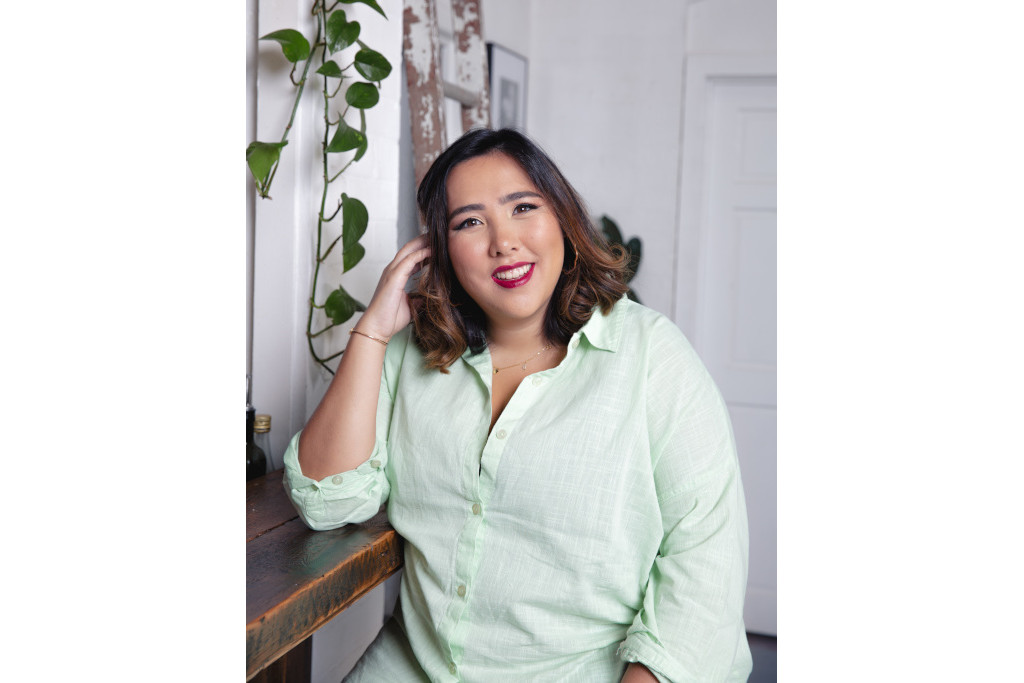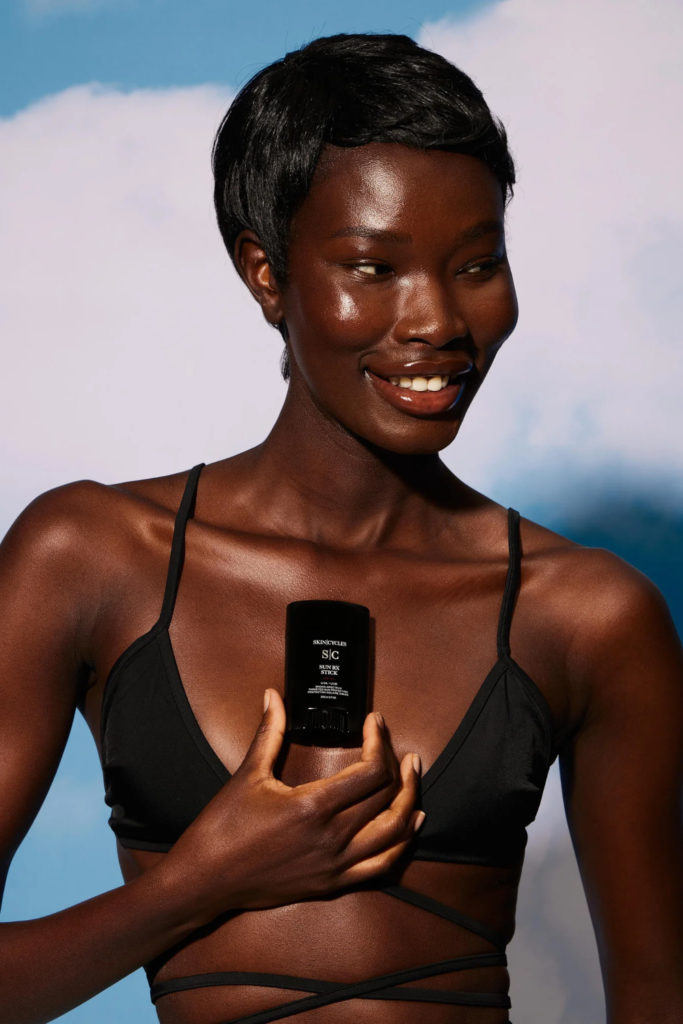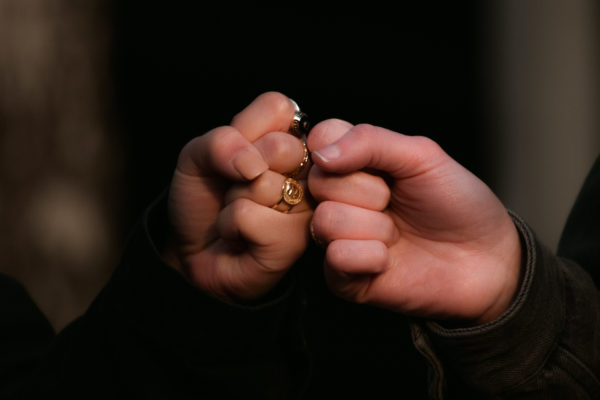‘Start with the word “no”‘: Michelle Elman on Setting Boundaries, Self-Love & Her New Book
By
2 years ago
'We need to stop seeing emotions and being "emotional" as a negative and start seeing the power in feeling our feelings'

Michelle Elman is becoming a well-known name in circles of mental health leaders and changemakers. Recognised as one of the top 100 creatives creating change, and one of The Sun’s 50 Most Inspirational Women in the UK, Michelle is keen to get the nation talking about body positivity, mental wellbeing and the importance of setting boundaries. We sat down with Michelle to get to know more about her career and the work she does – and seek out some of her expert tips along the way.
This interview was originally published in January 2023
Michelle Elman on Setting Boundaries, Self-Love & Her New Book

Michelle Elman
Hi Michelle, thanks for joining us today? Could you please kick us off by telling our readers a bit about yourself?
My name is Michelle Elman. I’m an author and life coach that is passionate about communication, setting boundaries and how to have the healthiest relationships possible.
The theme of World Mental Health Day this year is making mental health and wellbeing a global priority – how do you think we can achieve this?
I think in order to prioritise mental health and wellbeing, we need to stop seeing emotions and being ‘emotional’ as a negative and start seeing the power in feeling our feelings and teaching people how to process their emotions. We live in a world that encourages numbing and suppression of emotions and as a result when someone communicates their emotions they are often seen as not being rational. We are capable of being both rational and emotional at the same time and when we are in touch with our emotions, it becomes a strength and not a weakness.
For those unfamiliar, can you explain the concept of setting boundaries? How important is it to our mental health?
Boundaries are how we teach the world to treat us. It’s the difference between who we are and who the world wants us to be and in order to set boundaries, you need to be able to put yourself first. When we are unable to do this, we often experience more anger and resentment and that leaves us more prone to burnout as we override how we are feeling in the service of others.
Some tips on setting boundaries for beginners?
Start with the word ‘no’. It’s the first boundary we learn and when we are able to use our ‘no’ effectively, it gives our ‘yes’ more power. Practice using the word without justifying yourself. You do not need a reason to say no whether that’s saying no to bad treatment, no to a party you don’t want to attend or no to taking on more work than you can handle.
View this post on Instagram
You’re also a life coach – what led you down that path?
It started with a degree in psychology but when I found myself in the client seat, I was able to see the limitations of talking therapy specifically in relation to trauma. This led me to explore a more holistic approach and becoming curious about how many options there are out there. I believe in order to really help people, you need to personally experience the benefits of that approach and so I went down the route of getting trained in all the modalities that specifically helped me.
When life coaching, what are the most common worries that people bring to you?
One of the biggest hurdles I have to face with a new client is that most people in the world have never been taught how to truly feel their feelings. It’s a phrase we hear a lot but it can take many sessions to hold their hand through the discomfort and the pain that arises when you are actually able to sit with your emotions for the first time. Once they are able to master that, it gives us a lot more power in all aspects of life as they are able to choose their response rather than just reacting to the world around them
You have a lot of projects under your belt – from books and podcasts to being a TedX speaker and life coach. How do you juggle everything?
I work to my strengths and delegate my weaknesses. One of the best business practices I have had is realising that people waste a lot of time improving on their weaknesses so I know what I am bad at and will happily hand it off to someone who can do it better whether it’s designing my website or getting an accountant who can handle foreign tax forms for my foreign book deals. Then it’s about knowing your limits, for example, if I am writing a book, my podcast is likely on hold. If I am doing a lot of public speaking, then my social media might be quieter than usual and I will turn down more brand deals. There are only so many hours in the day and my mental health comes first!
Proudest moment of your career so far?
Definitely my TedX talk! Probably because it was the thing I was closest to saying no to simply because I was scared. I have a rule from the day I started my business though, I was never allowed to say no because I was scared, I could only say no if I was busy or I didn’t want to so I said yes and told myself that I would figure it out later. I worried that I wasn’t ready and that my public speaking wasn’t good enough. Turns out, that ‘yes’ was the exact thing that made my public speaking better. To date, it is my best talk I have ever done and I learned a vital lesson out of it: no one ever feels ready.
Best piece of advice you’ve ever received?
The reason why you over-romanticise him is because the reality of him was not good enough.
What can you tell us about your upcoming book, The Selfish Romantic?
It’s all about how to date without feeling bad about yourself. I was single for eight years and in that period, I fell in love with dating. Dating is often discussed alongside moans and groans and we never hear about the fun and positives of dating. It seeks to treat dating as a legitimate stage and not just a waiting room for you to be in a relationship. It’s time to throw out the advice that you need to change yourself in order to be successful in dating. Race, size and disability are topics that are shied away from in dating books and I was most excited to be addressing them head on!
How important is self-love when it comes to dating?
Self-love is a lofty concept and it’s hard to pin down exactly what it looks like. To me, it means being kind to yourself and choosing yourself over another person and their opinion. In that definition, self love is essential because when you are dating, you will come across people who don’t want to date you or don’t want to go on another date. In that situation, you need self-love to know that it’s OK that you aren’t a match and there is nothing wrong with you. Without self-love, that’s when we are vulnerable to changing ourselves to gain another person’s favour.
Your three golden rules for those of us on the dating ladder?
- Say what you mean and mean what you say. People often get scared of setting boundaries because they think it will scare off any potential interest. See it another way: it’s harder to set boundaries if you don’t have a precedent for it. Changing the dynamic is a lot harder than setting boundaries from the start and letting their response decide if you want to be with that person.
- Ask instead of assuming. Want to know why they are texting you less? Don’t know if they want to go on another date with you? Ask them. If you keep whirling it around in your brain, you will make up stories and if you are feeling insecure about it, they will likely be stories that will hurt you.
- You shouldn’t have to convince someone to like you. If they say they don’t feel the same way as you, believe them. They know themselves better than you do and trust that if they are making that call, they are doing you both a favour.
View this post on Instagram
A huge trend we’ve seen this year is quiet quitting – what’s your take on it with relation to mental health and self-care?
The term ‘quiet quitting’ has morphed and changed rapidly despite being a seemingly recent invention. For some people, it means not going over and beyond, leaving work on time and not doing extra hours without financial compensation. In this case, it is simply good work boundaries and it is long overdue that companies stopped expecting 24 hour access to their employees. For others though, quiet quitting is mentally checking out of the workplace, not doing the job you are paid to do and still collecting your paycheck, this is different. If this is what you are doing, you should look for another job that satisfies and fulfills you because it is both unfair on your employer and doing your skills a disservice.
DISCOVER
You can keep up-to-date with Michelle via her Instagram account, @michellelelman
The Selfish Romantic: How to date without feeling bad about yourself by Michelle Elman is out now. michelleelman.com










